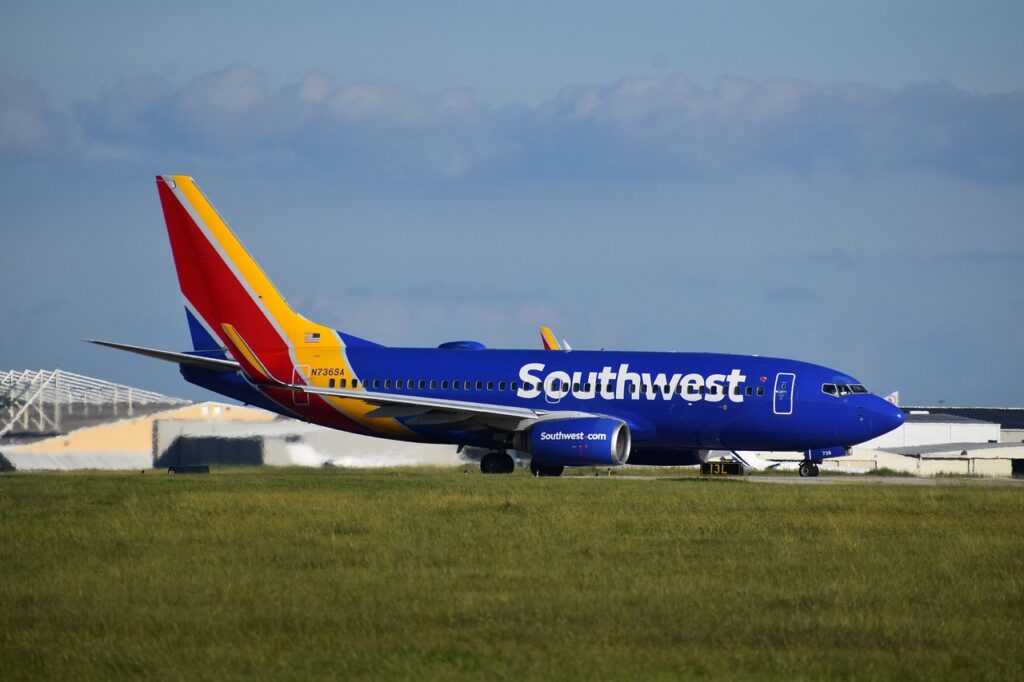
(Rightallegiance.com) – In a significant move reflective of broader challenges in the aviation industry, Southwest Airlines has announced its decision to cease operations at multiple airports. This decision, revealed on Thursday, is largely a response to ongoing production issues at Boeing, which have impacted aircraft deliveries and, consequently, airline operations worldwide.
Southwest Airlines, known for its extensive domestic network, will discontinue service to several locations including George Bush Intercontinental Airport in Houston, Bellingham International Airport in Washington, Cozumel International Airport in Mexico, and Syracuse Hancock International Airport in New York. This strategic pullback is part of what the airline describes as an initiative to optimize its network by exiting underperforming markets.
The airline’s CEO, Bob Jordan, underscored the severity of the situation in comments tied to Boeing’s most recent earnings report. Jordan stated, “The recent news from Boeing regarding further aircraft delivery delays presents significant challenges for both 2024 and 2025.” He attributed part of the airline’s recent financial struggles to these delays, emphasizing the disruption they have caused in planning and operations.
Southwest reported a notable financial loss of $231 million, or 39 cents per share, for the quarter. This downturn has prompted the airline to implement several cost-cutting measures, including limited hiring and voluntary time off programs, aimed at reducing its workforce by approximately 2,000 employees by year’s end compared to the end of 2023.
The fallout from Boeing’s delays is not isolated to Southwest. Earlier in the year, United Airlines also faced operational disruptions due to issues at Boeing, leading to a temporary halt in pilot hiring and a request for pilots to take unpaid leave. This chain reaction underscores the extensive impact of Boeing’s production challenges on the aviation sector.
Further complicating the situation is the increased scrutiny from the Federal Aviation Administration (FAA) towards Boeing and its suppliers, including Spirit AeroSystems. The FAA’s heightened oversight followed an incident where a door plug blew out during a flight on one of Alaska Airlines’ Max 9 jets, prompting a reevaluation of production expansions for the Max series.
In response to these challenges, Jordan highlighted Southwest’s proactive steps: “We are focused on controlling what we can control and have already taken swift action to address our financial underperformance and adjust for revised aircraft delivery expectations.” He stressed the importance of maintaining reliable service and minimizing disruptions for customers, indicating that the airline is swiftly re-planning its operational strategies.
As Southwest adapts to these adversities, the broader airline industry continues to grapple with the ripple effects of manufacturing delays. The situation at Boeing has laid bare the interconnected nature of modern aviation, where delays in one part of the supply chain can lead to significant operational and financial challenges for airlines around the globe. As airlines like Southwest recalibrate their strategies, the industry watches closely, hoping for stability and a smoother flight path ahead.